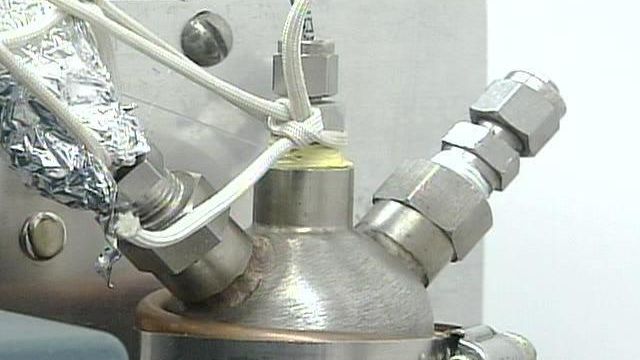Local News
Fat Power: Researchers Plan to Make Fuel From Lard
North Carolina State University researchers are developing a system to convert animal fat into an alternative fuel.
Posted — UpdatedRALEIGH, N.C. — North Carolina State University researchers are developing a system to convert animal fat into an alternative fuel.
The researchers have partnered with an Arizona-based energy company to produce a fuel they have dubbed Centia, which they said is the Latin equivalent of "green power."
Unlike ethanol and some other alternative fuels, Centia requires no fossil fuels in the production process, said Henry Lamb, an associate professor of chemical and biomolecular engineering.
"Our process would convert animal fat, lard for example, from pig processing into a usable fuel," Lamb said. "I grew up on a hog farm in Sampson County, so absolutely I'm very familiar with hog production."
Lamb said triglycerides are converted into fatty acids, which are treated in a reactor to produce hydrocarbons.
Bill Roberts, a professor of mechanical and aerospace engineering, said the process also would be more efficient for hog farmers.
"Animals that die on the farm, farmers typically pay to have them crated away and burned or buried. We can use those and turn them into jet fuel," Roberts said.
The researchers said they want to start at the top of the fuel chain with jets, then move their way down to biodiesel and eventually biofuel for cars.
More than 17 billion gallons of jet fuel are used in the U.S. each year. The researcher said that, if they can replace that jet fuel with Centia, more crude oil would be available for gasoline production, which could lead to lower prices for drivers.
A gallon of unleaded regular gas in the Triangle costs $2.17.
The researchers said they hope to have their first batch of Centia on the market in about a year and a half.
• Credits
Copyright 2024 by Capitol Broadcasting Company. All rights reserved. This material may not be published, broadcast, rewritten or redistributed.





